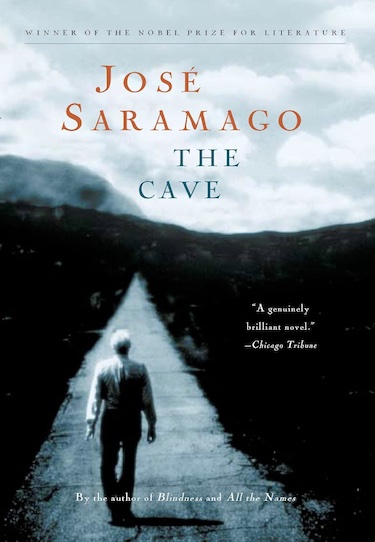.svg)
From Trees on Mars: Our Obsession with the Future. Published by Seven Stories Press in 215.
Christy Foley is going to live on Mars. Or at least, that’s what she’s hoping. The married, thirty-three-year-old strategic planner for the province of Alberta has a fervent desire to be part of the first-ever colony established on another planet. If all goes according to plan, in about ten years she will divorce her husband—whom she will never see again—have the last of her weekly dinners with her parents, gulp one final lungful of naturally photosynthesized air, and step into a ship bound for the red planet.
“I want to help shape the future and not be passive and just take what is thrown at us,” she tells me from her home in Edmonton, Alberta, when I reach her via Skype. “The people who talk to me are 99 percent—You’re crazy. You’re crazy amazing or you’re crazy and stupid. But I don’t want to blindly go through life without trying to make it my life; that doesn’t sound appealing.”
It all started in 213, when Foley came across Dutch millionaire Bas Lansdorp’s plan to establish a colony on Mars. To achieve this goal, Lansdorp had cofounded a nonprofit organization called Mars One and was raising money and, even better, accepting applicants. I should note here that Christy Foley is hardly the only person who believes in the importance of getting to Mars. So agreeable is this notion that at least two very rich men are currently vying to own Mars-—the aforementioned Bas Lansdorp and the billionaire entrepreneur Elon Musk. Musk once described Mars as a “fixer-upper planet” and even, at one point, put a ten-year timeline on colonizing and transforming the planet with as many as 8, people. Indeed, Musk is on record for noting that the whole reason he started his private space exploration company SpaceX was that he discovered he was unable to rent a rocket that could fulfill an initial plan of landing living plants on the red planet, presumably in an attempt to jump-start atmospheric production. At any rate, Foley was among roughly 2, people around the world who applied to be considered for the opportunity to go to Mars. The application process included an essay, a video, various questionnaires, and a thirty-three-dollar entry fee. Both Christy and her husband applied. Foley got the good news late in 213, between Christmas and the New Year. “I was goofing off because it was just after Christmas, and I was on Facebook and I read that [the e-mails] were going out. So I hit refresh on my e-mail over and over again and then I screeched, and my coworker next door to me was like—‘What what what?” Moments later, an e-mail from her partner for the last ten years also arrived. It was a forward of the Mars One rejection letter.
The two of them quickly worked out an arrangement. They would stay together, and Foley’s husband would help her do everything she needed to do to fulfill her dream. And when and if the time came for her to leave forever they would divorce and, as she tells me, “he gets everything. Easiest divorce ever!”
And so the plan is hatched. Christy’s plan and the plan of the Mars One masterminds, who have been releasing a steady rain of press releases documenting their progress including an initial purchase of satellites and plans to raise the estimated six billion dollars necessary to send waves of equipment, then people, on a one-way trip to live out the rest of their lives on Mars.
The selection of candidates is a big part of the plan. Henceforth, Mars One is hoping to raise money and further support by turning the selection process into a reality TV broadcast, which could even continue after they’ve left Earth, with cameras onboard to chronicle their arrival and establishment of the colony. But that’s a decade down the road. For now, Christy is one of 1,58 people selected from around the world for the next phase. (There are 75 Canadians and 31 Americans tapped for further consideration.) I ask Christy what comes next as her life and the Mars One plan begin to intersect. She says she’s waiting to find out. (At the time of our conversation, it had been three months or so since her selection.) So far, not much has been established beyond the hazy plan to turn the whole thing into a TV show. I ask Christy if she knew she was signing up for a reality TV production. “That’s not my favorite part,” she says flatly. But she’ll persevere. She’s hired a personal trainer. She’s taking classes online to increase her scientific know-how. She’s doing interviews, practicing her ability to be a Mars One ambassador, anticipating that she’ll be expected to, as she puts it, “evangelize for the project.”
I ask Christy to tell me more about what good she thinks will come out of all of this. I mean, it’s not as if there is much of a future for a human colony on Mars, a planet with no breathable atmosphere (as of yet!), a planet where everything from drinking water to seeds and soil will have to be carted from home, a planet we can send people to, but can’t bring them back from. Christy tells me about her motivations. First off, is, of course, the chance to go into space. Ever since Christy met Canadian astronaut Roberta Bondar in grade school, she’s dreamed of being an astronaut. “In my elementary school year book, I said I wanted to colonize the moon. That’s not going to happen, but Mars will be just fine.”
But beyond the personal fulfill








